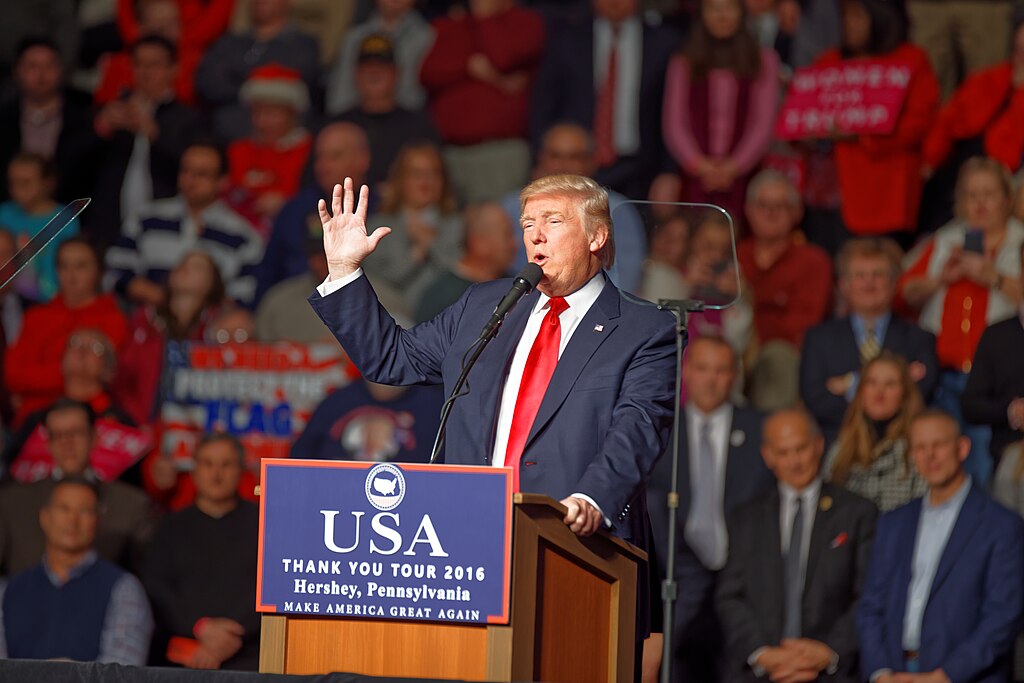President-elect Donald Trump has rolled out a controversial strategy to combat homelessness in 2025, promising to address what he calls a "humanitarian crisis" affecting major U.S. cities. His plan, which includes relocating homeless individuals to federally managed facilities, has sparked a heated national debate over its feasibility and ethics.
Trump’s proposal aims to clear urban streets by offering shelter, rehabilitation programs, and job training. However, critics claim the plan could criminalize homelessness and strip individuals of their autonomy, adding that it might worsen existing inequalities.
Key Elements of Trump’s Homelessness Plan
The president-elect’s plan outlines the establishment of federally managed facilities—termed “transitional housing centers”—designed to house homeless individuals temporarily. These centers, proposed to be built on federal land outside urban areas, would offer access to mental health services, substance abuse treatment, and workforce training.
Trump’s administration argues that these centers will not only remove unsanitary encampments but also provide a pathway to reintegration into society. However, the program requires significant federal funding, with early estimates suggesting a cost of nearly $50 billion over four years.
Additionally, the plan seeks to penalize cities that fail to comply with federal homelessness guidelines, such as reducing visible encampments or implementing stricter anti-loitering laws. Federal grants to non-compliant cities could be withheld, further pressuring local governments to adopt Trump’s strategy.
Public and Expert Reactions
While some have welcomed the focus on mental health and addiction treatment, others argue that the plan lacks nuance and empathy. Civil rights groups warn it could lead to mass displacement and violations of personal freedoms. Critics also question the long-term sustainability of relocating homeless populations to federally operated facilities.
Social media reactions showcase the divide in public opinion:
- @UrbanReformer: “Trump’s plan offers real solutions to homelessness for the first time. Cities have failed for too long.”
- @ActivistLaura: “Shipping people off to camps isn’t the answer. It’s dehumanizing and ignores systemic issues.”
- @PolicyWonks: “The mental health component is overdue, but relocation centers sound like a PR move, not a solution.”
- @JohnInSF: “Homelessness is a complex issue. You can’t fix it by just moving people out of sight.”
- @AmericaFirstNow: “Finally, a president who’s not afraid to take bold steps. Our streets need to be cleaned up!”
- @HumanRightsNow: “This approach could backfire badly. Homeless individuals need support, not punishment.”
Challenges Ahead
Experts warn that implementing Trump’s plan could face logistical and legal hurdles. Questions about funding, city compliance, and human rights have already emerged. Critics also argue that the plan does not address root causes such as housing affordability and wage stagnation.
Moreover, local governments and advocacy groups could challenge the initiative in court, citing potential constitutional violations. States like California, which have significant homeless populations, are likely to resist federal mandates that conflict with their existing programs.
Despite these challenges, Trump’s team maintains that the plan is a “bold, compassionate approach” to resolving a crisis that has plagued American cities for decades. Supporters argue that visible action could boost public confidence in the administration’s ability to handle complex social issues.



 Trump’s Iran Strikes Spark War Powers Clash in Congress
Trump’s Iran Strikes Spark War Powers Clash in Congress  Rubio Says U.S. Would Not Target School After Deadly Iran Strike Reports
Rubio Says U.S. Would Not Target School After Deadly Iran Strike Reports  Israel Launches Fresh Strikes on Iran After Death of Supreme Leader Ayatollah Khamenei
Israel Launches Fresh Strikes on Iran After Death of Supreme Leader Ayatollah Khamenei  Australia Rules Out Military Involvement in Iran Conflict as Middle East Tensions Escalate
Australia Rules Out Military Involvement in Iran Conflict as Middle East Tensions Escalate  Trump Announces U.S. Strikes on Iran Navy as Conflict Escalates
Trump Announces U.S. Strikes on Iran Navy as Conflict Escalates  Argentina Tax Reform 2026: President Javier Milei Pushes Lower Taxes and Structural Changes
Argentina Tax Reform 2026: President Javier Milei Pushes Lower Taxes and Structural Changes  Russia Signals Openness to U.S. Security Guarantees for Ukraine at Geneva Peace Talks
Russia Signals Openness to U.S. Security Guarantees for Ukraine at Geneva Peace Talks  AI is already creeping into election campaigns. NZ’s rules aren’t ready
AI is already creeping into election campaigns. NZ’s rules aren’t ready  Why did Iran bomb Dubai? A Middle East expert explains the regional alliances at play
Why did Iran bomb Dubai? A Middle East expert explains the regional alliances at play  Trump Warns Iran as Gulf Conflict Disrupts Oil Markets and Global Trade
Trump Warns Iran as Gulf Conflict Disrupts Oil Markets and Global Trade  Israel Strikes Hezbollah Targets in Lebanon After Missile and Drone Attacks
Israel Strikes Hezbollah Targets in Lebanon After Missile and Drone Attacks  Failure of US-Iran talks was all-too predictable – but Trump could still have stuck with diplomacy over strikes
Failure of US-Iran talks was all-too predictable – but Trump could still have stuck with diplomacy over strikes  EU Urges Maximum Restraint in Iran Conflict Amid Fears of Regional Escalation and Oil Supply Disruption
EU Urges Maximum Restraint in Iran Conflict Amid Fears of Regional Escalation and Oil Supply Disruption  UK Accepts U.S. Request to Use British Bases for Defensive Strikes on Iranian Missiles
UK Accepts U.S. Request to Use British Bases for Defensive Strikes on Iranian Missiles  Zelenskiy Urges Change in Iran After U.S. and Israeli Strikes, Cites Drone Support for Russia
Zelenskiy Urges Change in Iran After U.S. and Israeli Strikes, Cites Drone Support for Russia  Marco Rubio to Brief Congress After U.S.-Israeli Strikes on Iran
Marco Rubio to Brief Congress After U.S.-Israeli Strikes on Iran  Trump Says U.S. Combat Operations in Iran Will Continue Until Objectives Are Met
Trump Says U.S. Combat Operations in Iran Will Continue Until Objectives Are Met 




























